Louis de France, Duc de Bourgogne et Dauphin de France
Louis de France was born on 6 August in 1682 at Versailles as the first child and son of Louis, le Grand Dauphin, and his wife Marie-Anne de Bavière. As son of the Dauphin, and thus after him next in line of succession to the throne, Louis was a fils de France and received the title Duc de Bourgogne upon his birth.
 Louis was the first royal prince to be born at the château de Versailles and his birth meant the throne was secure for another generation. Since Versailles was still pretty much a construction side, the court had only just settled there, the Dauphine fled her rooms to settle in those of Madame Colbert, for her own were way too noisy, she could hear the workers perform their tasks, and smelled badly of fresh paint, in order to spend the last weeks of her pregnancy in a more comfortable surrounding. It was a terribly hot August. The Dauphine of delicate health. It was decided that a surgeon should be present at the birth and a new invention, a special birthing bed with foot support, was brought. The Dauphine was in labour for two days and, in the early morning hours of 6 August, it was feared she would die at any moment… as finally a little boy was born.
Louis was the first royal prince to be born at the château de Versailles and his birth meant the throne was secure for another generation. Since Versailles was still pretty much a construction side, the court had only just settled there, the Dauphine fled her rooms to settle in those of Madame Colbert, for her own were way too noisy, she could hear the workers perform their tasks, and smelled badly of fresh paint, in order to spend the last weeks of her pregnancy in a more comfortable surrounding. It was a terribly hot August. The Dauphine of delicate health. It was decided that a surgeon should be present at the birth and a new invention, a special birthing bed with foot support, was brought. The Dauphine was in labour for two days and, in the early morning hours of 6 August, it was feared she would die at any moment… as finally a little boy was born.
As Louis was born, in the rooms of Madame Colbert, and under the curious eyes of the court, his papa was so beside himself with joy, that he, never-minding rank and status, embraced and kissed all ladies present. He was not the only one full of joy…. a valet, upon hearing the news, stripped naked and tossed all his garments into a fireplace to express his joy… and the Swiss Guards on duty outside the château, seized and carried the expensive furniture of the ground floor outside to make a bonfire.
Little Louis received an emergency-baptism on the day of his birth in presence of Louis XIV and Monsieur. The mother, still somewhere between life and death, was locked into the bedroom for the next nine days. It was feared that she might die in her sleep out of exhaustion after the long and painful birth, so she was forcefully kept awake for the rest of the day.
Louise de Prie, who served as royal governess to the children of Louis XIV from 1661 to 1672, was named governess of the young prince… and that wasn’t an easy task. Le Petit Dauphin, how Louis was called, was a quite difficult child.
He was quite arrogant and uncaring about most matters, but could throw major tantrums at the sight of the slightest opposition. He did not give in before he got what he wanted, respecting no-one. Was fond of everything that provided pleasure and could be quite cruel if things did not went how he wanted. Saint-Simon puts it poetly: “He looked down from the clouds on other men, whom he regarded as mere atoms with whom he had nothing in common. Even his brothers, though he had been brought up with them on a footing of perfect equality, barely seemed to him to hold the position of intermediaries between himself and the human race.”
As it was time for le Petit Dauphin to leave the company of women, who were partly blamed for his behaviour by spoiling him too much, and enter the company of men, the Duc de Beauvilliers was appointed as governor of the Dauphin’s children. Louis had two brothers, Philippe and Charles, by then. Beauvilliers went in search of a tutor, someone skilled enough to deal with the troublesome Louis, and decided to recommend François Fénelon as such.

Fénelon, a man of the Church, was charged with the hard task to turn a temperamental child, that knew no limits, into a obeying one and a future King of France. In contrary to the methods applied during the Dauphin’s education, which often involved physical punishment, Fénelon went for a more gentle approach. Louis was not stupid, he was highly intelligent, he just needed to be stirred into the right direction. And Fénelon did that by somewhat playfully, sometimes in to form of Fables, pointing the vices out and what might be their consequences, in hopes Louis would see himself in it. It worked. While Louis could not deal with direct reprimands regarding his behaviour, these indirect ones, where he could decide to apply it to himself or not, showed an effect.
The process was long and slow, some days it worked better than on other days, and whenever the need arose for sterner measures, Fénelon had a trick for it too. The Petit Dauphin was sent to his room and all books were taken away, something bothersome for a smart child with a desire to learn. He was ordered to eat alone and the servants were forbidden to answer his questions. When it was necessary for the servants to speak to petit Louis, they did it in a way one would speak with a child of low intelligence. Louis did not like that at all, of course, he knew he was smart. It offended him to be treated as if he was stupid, when he was not and only just could not control himself at times…. when the punishment was over, little Louis had to write his apologies down. To make sure he understood it.
“I promise Monsieur l’Abbe de Fénelon, on the word of a prince, to do at once what he tells me, and to obey him the moment he forbids me anything; and if I break my word I will submit to any kind of punishment and disgrace. Written at Versailles, the 27th of November 1689.—Louis.”
The Duc de Bourgogne and his brothers were not at all spoiled and excluded from most court activities. They lived after a strict daily schedule, much like their grandfather, but with far fewer comforts. They were allowed to listen to the music during the Appartements, but that was it.
Every day, no matter the season or day, they were woken at 7.45 in the morning and had to be at mass by 8.15. After which they were led to their grandfather and father for a brief visit, before their first lesson of the day, lasting from 10 until 12 o’clock. They had a meal at noon and another lesson in the afternoon, during summer from 3 to 5 o’clock and during winter from 5 to 7 o’clock. At 7.45, it was time for supper and all went to bed once the clock struck 9 o’clock. There was always enough to eat on their plates, but the menu was a simple one with no variety. Delicacies and sweets were forbidden. Water and bread for breakfast, beef or chicken, with water or a light wine, for lunch, a crust of bread as afternoon snack, and for supper the same they had for lunch. A sparse diet combined with physical outdoor exercise. Every day. If one of them was not feeling well, due to a cold for example, it was simply ignored and they had to exercise just the same. Also when it rained. It was not always easy for little Louis, he showed signs of a curvature of the spine and had to wear an iron apparatus in the shape of a cross, intended to straighten the spine, which did not really do him much good.
 Madame de Maintenon, who had taken to Fénelon for spiritual guidance, wrote in 1704 about the Duc de Bourgogne: “Ever since his first Communion, we have seen all the faults, which in his childhood gave us such fears for the future, gradually disappear. His goodness has gone on steadily increasing, and he has lived down nobly all the jests which were at first levelled against him…. What specially marks the solid character of his piety is the violence which he has to do to his nature in order to master his faults, and he has to hold himself in with all his might in order not to give way to his passions. But religion has so changed him that, from being violent and hot-headed, he has become gentle, calm, and sweettempered, and he keeps such a hold over himself that it is difficult to detect any traces of his original character.”
Madame de Maintenon, who had taken to Fénelon for spiritual guidance, wrote in 1704 about the Duc de Bourgogne: “Ever since his first Communion, we have seen all the faults, which in his childhood gave us such fears for the future, gradually disappear. His goodness has gone on steadily increasing, and he has lived down nobly all the jests which were at first levelled against him…. What specially marks the solid character of his piety is the violence which he has to do to his nature in order to master his faults, and he has to hold himself in with all his might in order not to give way to his passions. But religion has so changed him that, from being violent and hot-headed, he has become gentle, calm, and sweettempered, and he keeps such a hold over himself that it is difficult to detect any traces of his original character.”
Once Louis curiosity was piqued about something, he went to explore at once. At eleven, he had already read Virgil, Homer, Horace, Livy and Tacitus. Geography piqued his interest too and at the same age he apparently knew geography of France as well as he knew the park of Versailles. If he took an interest in something, it was made sure that he could explore to topic… apart from music instruments. He was forbidden to learn how to play one, out of fear it might inspire a passion which would distract him from more important matters. The same applied to science and mathematics, topics that were not considered that important or required for the daily business as King. Louis later taught himself to play the harpsichord and also ventured into science and mathematics. At thirteen he was deeply taken with philosophy. At twenty, he wrote: “Nothing pleases me so much as metaphysics and ethics.”
But all good things come eventually to an end. Fénelon fell out of favour over his involvement in the Quietist controversy and his ideas of how a King should rule and was sent away from court. Everyone, apart from Beauvillier, that was somehow involved with Fénelon and part of the young prince’s household was dismissed. Correspondence between ex-tutor, who had become more of a father to Louis than a teacher, and student strictly forbidden.
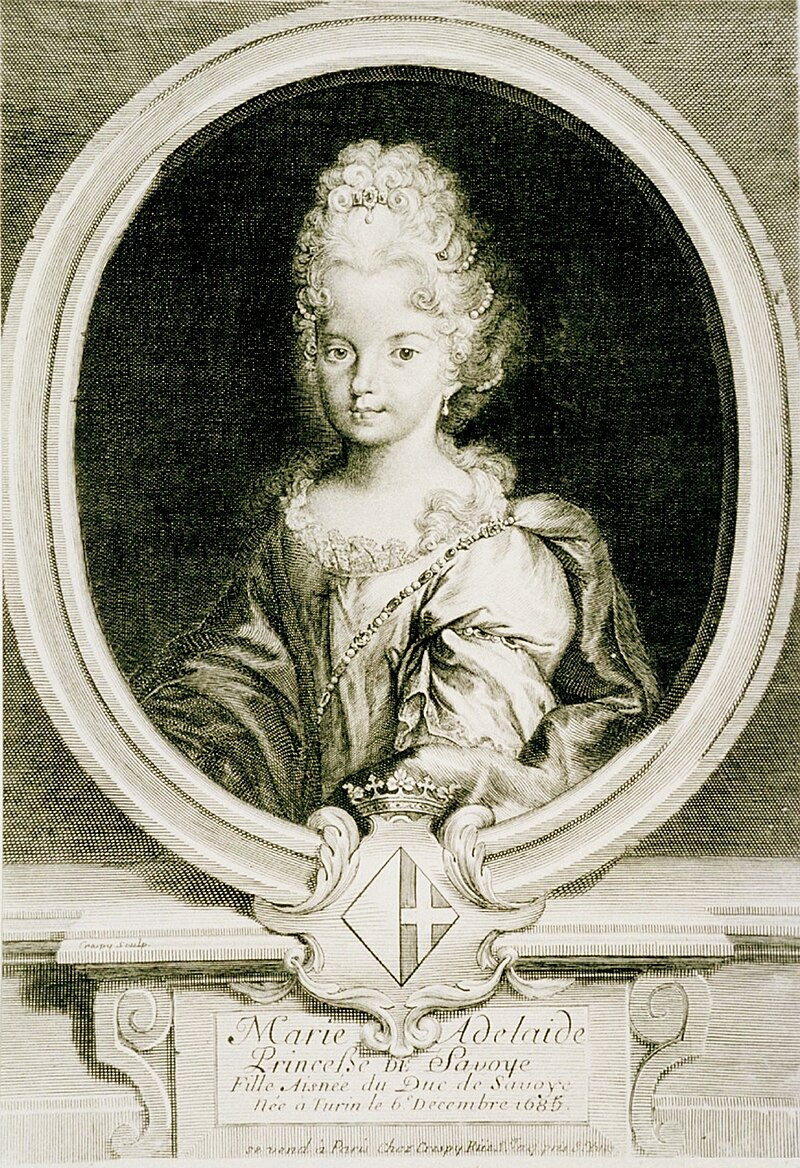 The Duc de Bourgogne was fifteen years old then and already engaged. The bride his grandpa had chosen for him was a grandchild of Monsieur. Marie-Adélaïde de Savoie, daughter of Anne-Marie d’Orléans and Victor-Amédée II de Savoie, Duc de Savoie. The engagement was a result of the Treaty of Turin, signed on 29 August in 1696, which put an end to the Franco-Savoyard conflicts of the Nine Years War. It was decided, that the Princesse, tender eleven years old then, would marry the Duc de Bourgogne, thus become Queen of France one day. You can image how thrilled Monsieur was about it. His granddaughter a Queen of France.
The Duc de Bourgogne was fifteen years old then and already engaged. The bride his grandpa had chosen for him was a grandchild of Monsieur. Marie-Adélaïde de Savoie, daughter of Anne-Marie d’Orléans and Victor-Amédée II de Savoie, Duc de Savoie. The engagement was a result of the Treaty of Turin, signed on 29 August in 1696, which put an end to the Franco-Savoyard conflicts of the Nine Years War. It was decided, that the Princesse, tender eleven years old then, would marry the Duc de Bourgogne, thus become Queen of France one day. You can image how thrilled Monsieur was about it. His granddaughter a Queen of France.
Since the bride-to-be was still rather young, too young to marry, it was also decided that she should travel to France in order to be educated and prepared for her future role there…. and everyone was at once utterly in love with her once she arrived…. apart from Madame and her soon-to-be father-in-law. They saw the little Princesse’s charm and liveliness, which at once had captivated Louis XIV to a point of no return, as an act.
A little over a year later, on 6 December 1697, the twelfth birthday of the bride, the marriage contracts were signed. Louis XIV ordered it should be celebrated with two balls, an opera and a firework. Not too much ado for a royal wedding, but the courtiers were commanded to appear in new garments… and that created quite the fuss. Court robes were expensive and the order to appear in brand new ones, ones that never had been worn before, was dreaded. It usually ended in a vanity contest, with people trying to outdo the rest, which in the end ruined many courtiers.
After the nuptials and some celebrating, le Petit Dauphin was permitted to give his bride a peck on the lips and to accompany her to the bedchamber, where he was, ceremonially, allowed to place himself in the bridal bed for a moment, before being shooed out. Later that evening, he attempted to sneak back in and was caught in the act by a chamber-woman, who, using profanities, showed him back out at once and reported the incident to the King. A fine scolding followed the next day and Louis was reminded, that he may kiss his wife, now and then, when the situation was fitting, but that was all. No touching or other things until she turned fourteen.
A couple of years later, in 1702, Louis was admitted to the Conseil du Roi. He was twenty years old then. His father had to wait until he was thirty to be admitted. Two years earlier, Louis’ younger brother Philippe became King of Spain. After the death of Charles II of Spain, the throne was vacant with two possible successors. The Austrian Habsburgs or the French Bourbons. Charles was in favour of the Bourbons, for he was the younger half-brother of Louis XIV’s wife Marie-Thérèse, but Marie-Thérèse had renounced her claims, also on behalf of her children, before her wedding. It was deemed not valid, since her dowry was never fully paid. Thus Philippe was the chosen successor. It could not be Louis XIV himself, nor could it be his son the Dauphin, or his oldest son the Petit Dauphin, for they were meant to rule France.
Louis’ and Marie-Adélaïde’s first child was born in 1704, it was a boy and like father, grandfather, great-grandfather and great-great-grandfather, they boy received the name Louis. The throne seemed secure for another generation, until one year later, the child died of convulsions. A second son, also named Louis, was born in 1707.
By 1708, after a war had broken out over Philippe’s right to succession, the Duc de Bourgogne was dispatched to Flanders. He was given command of the army with Louis-Joseph de Bourbon, Duc de Vendôme, at his side. Although Louis was quite talented in strategy and in command, he was ordered to act strictly after the instructions which were sent to him and not to do anything without asking the more experienced Duc de Vendôme first. It did not work out that well. Vendôme was indeed experienced and very skilled, but not skilled enough to defeat his opponents, thus one battle after the next was lost. For the Duc de Bourgogne it was not easy either. All his life he had been taught to distrust his instincts, and himself, but instincts are essential when one has to lead an army. He had become, thanks to Fénelon, a very pious man. Pious to the point were it was ridiculous. Always afraid to commit a sin. And so, instead of commanding, he could often be found at mass or prayer. Vendôme, backed by the clique of Meudon, who planned to use the Dauphin, once he was King, for their own advantage, used it a bit to smaller his own failures. The Meudon clique was not happy with the Duc de Bourgogne, because they feared he could influence his father, and that influence was in the way of their plans.
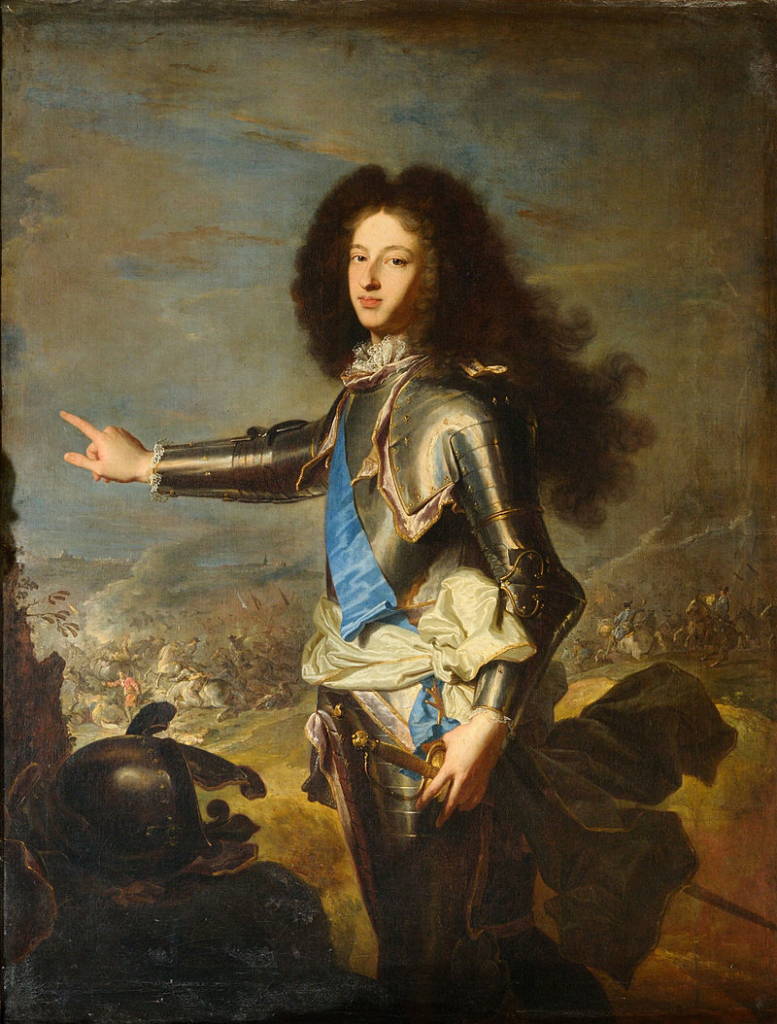
So, a bit of a slander campaign was launched against Louis, accusing him of cowardice and ridiculing his whole person. It worked and Louis was soon an object of laughter. Apart from a few friends, all of the court was sure that Vendôme, their hero, had only lost the battles because of the Duc de Bourgogne, who, less experiences, insisted things had to go his way and did not listen to any advice. The Duchesse de Bourgogne tried to solve the situation and turned to Madame de Maintenon for advice. Louis was informed of what was going on behind his back, and how unhappy the King was with him, and urged to speak about what went on…. but he refused. He was too chivalrous to point the finger at Vendôme and Meudon, no matter how much slander came from that direction, and thought that time will do him justice.
As he returned to court in December 1708, Louis XIV greeted him kindly, but not too joyfully, and the court, as far as etiquette allowed, ignored him. Louis did not mind that much. He was too happy to be back home and to see his wife, whom he adored like nothing else. He was all smiles and happiness, which his wife found not that fitting given the situation. Thus she talked him into a brief retirement from court.
Louis did not mind that much either. He returned to his books and studies and enjoyed a bit of domestic bliss. Marie-Adélaïde was soon pregnant again and as she went into labour, on 15 January in 1710, Louis rushed to her side. The birth was not easy, for the child was in the wrong position and already considered lost, as a physician managed to help it on its way by pulling the child out on his legs. The time of the birth was precisely recorded, 8 hours, 3 minutes and 3 seconds in the morning, and believed to be a good sign. The child was named Louis, received the title Duc d’Anjou, to mark his role as future brother of a King. Nobody thought it possible that this child would become, in less than five years, the successor of the great Sun King….
Those last five years in Louis XIV’s reign were marked by the sudden death of almost all his heirs. It started in 1711, when the Dauphin fell suddenly ill and died only a few days later due to smallpox. He was only forty-nine years old. As oldest son of the Dauphin, Louis became the new one, the one that ought to follow his grandfather…
…and what a King that would be. Louis rejected the form of address, Monseigneur, which his father had carried, as it was offered to him by Louis XIV. He also rejected the pension of 50,000 livres a month, which his father had enjoyed, saying that “The state is too deeply in debt, I shall continue to live as Duc de Bourgogne.” Of the 16,000 livres he received, he spent 15,000 on charity. As he was introduced to the Secrets of State and began to work with the Ministers, everyone was truly surprised. The previous slander forgotten and even the most critic minds, the King among them, praised the new Dauphin. “You will see, he knows everything, and he will do better than I.” said Louis XIV by the end of 1711.
 By the start of 1712, as the court was still in mourning for the previous Dauphin, Marie-Adélaïde fell ill. First with a mysterious pain, she described to be worse than what she had suffered during childbirth, as the pain eventually vanished a high fever followed and signs of measles appeared. Louis, utterly devoted to her, remained at her side until he was ordered to retire, showing signs of fever himself. He was ill in his rooms, below those of his wife, as the news of her death reached him on 12 February. In order to be spared to witness the sounds coming from above, the sounds of the embalming of his wife, the Dauphin was ushered into a carriage en route to Marly.
By the start of 1712, as the court was still in mourning for the previous Dauphin, Marie-Adélaïde fell ill. First with a mysterious pain, she described to be worse than what she had suffered during childbirth, as the pain eventually vanished a high fever followed and signs of measles appeared. Louis, utterly devoted to her, remained at her side until he was ordered to retire, showing signs of fever himself. He was ill in his rooms, below those of his wife, as the news of her death reached him on 12 February. In order to be spared to witness the sounds coming from above, the sounds of the embalming of his wife, the Dauphin was ushered into a carriage en route to Marly.
He reached Marly utterly grief-struck and without any will to live, with only the desire to hide away and mourn… but Marly was no place for mourning. It was expected of him to receive the usual visits of condolence, he did as well as he could, then to see the King. The King was grief-struck as well, for the Duchesse was his favourite companion. He used to take her with him everywhere. His meeting with the King was incredibly touching. The grief of the loss of his wife made him forget his own health for a moment, or maybe he decided to ignore it. The condition he was in as he met his grandfather was already very worrisome, his face red and full of marks.
The Duc de Bourgogne was ordered back to bed. He did not fight it. Received the sacraments and followed his wife on 18 February in 1712.
Their oldest son, the five-year old Duc de Bretagne, became the new Dauphin and the measles took him too in March. His younger brother, the Duc d’Anjou, got infected as well, but was saved. Not by the doctors, they went on with their usual treatment of bleeding. Madame de Ventadour, the governess of the little boy, took him away from the presence of the doctors and nursed him back to health… to become Louis XV three years later.

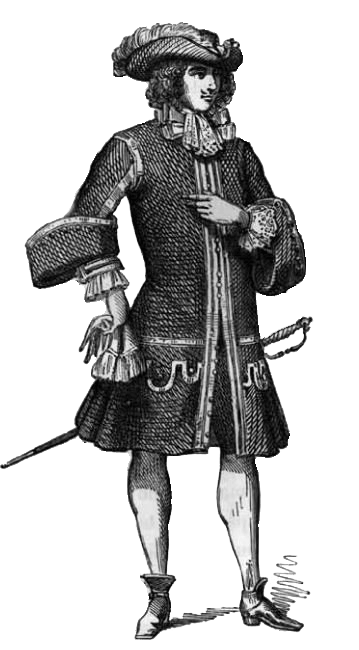
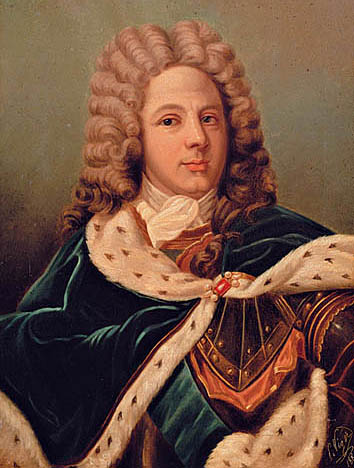
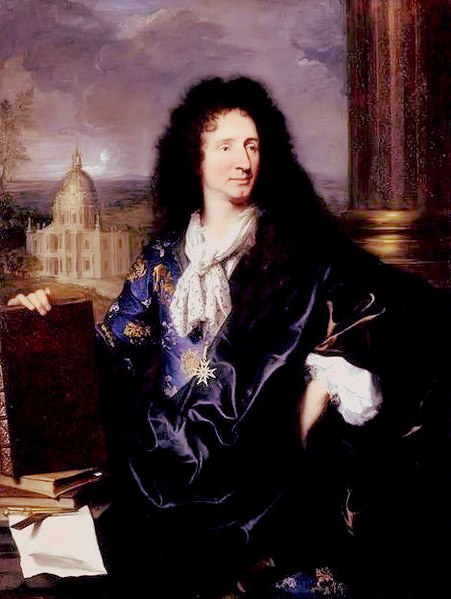

2 Comments
Mizu
Gosh his marriage with his wife seems adorable!! If you’re not too busy, could you direct me to more royals who actually liked their partner?
Aurora von Goeth
Start with Marie-Thérèse d’Autriche. She really loved and adored her adulterous hubby. Usually it’s the men who are utterly in love with their wives, while the wives are not so much into the grooms. The Queen of Spain and her hubby were quite adorable too.